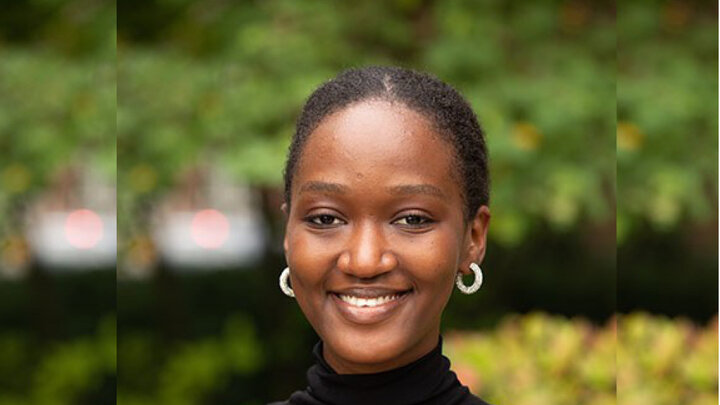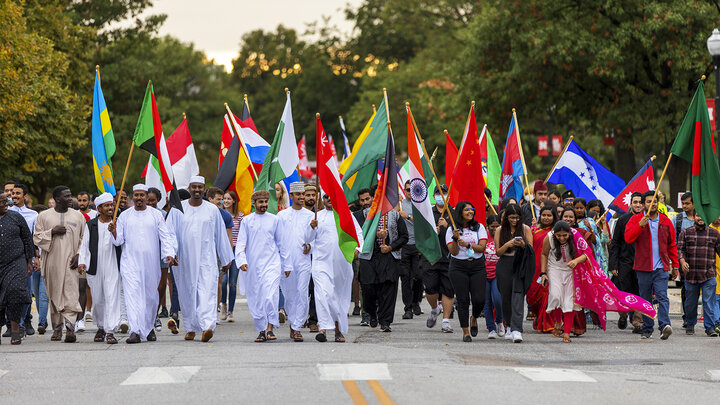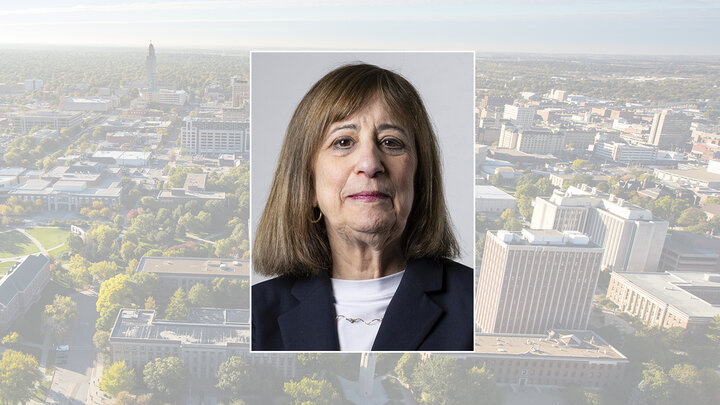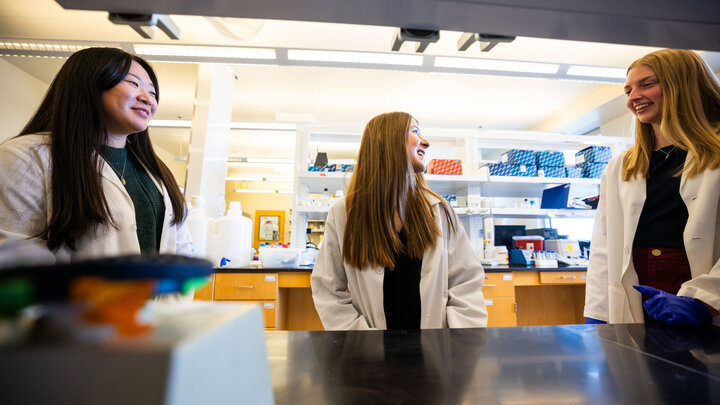Before beginning her current Ph.D. program in Food Science at Penn State, Zilfa Irakoze got her start at the University of Nebraska–Lincoln (UNL), where she came to the College of Agricultural Sciences and Natural Resources from Kigali, Rwanda. It was an experience she credits with sparking her passion for food safety research. Today, her work focuses on microbial contamination in supply chains, specifically examining the use of sustainable biological control solutions to reduce molds and their toxins in foods. In this Q&A, she reflects on her time at UNL, her current research, and offers advice for future scientists.
How did the academic environment and faculty at UNL help prepare you for your PhD program?
My bachelor’s degree in Integrated Science is what led me to my master’s and subsequently PhD. The interdisciplinary program at UNL exposed me to different realms of science—conservation, agriculture, entrepreneurship, leadership, and a third area of focus, which for me was food safety. I became especially interested in food safety and agriculture, not just the lab work, but the broader political, economic, and social aspects—especially the people. Agriculture brings all those parts together to solve big food security challenges.
The people part of agriculture is really important to me—I am passionate about integrating farmers’ needs in our research, extending the impact of lab work through community education, and collaborating with policymakers to develop sustainable and community-adaptable solutions to food safety challenges. My time at UNL opened my eyes to all these possibilities, and that being a researcher goes far beyond just sitting at a lab bench. We also had the chance to visit several processing facilities and policy-making institutions, which added practical insight. Those experiences led me to pursue a dual-title PhD in Food Science and International Agriculture and Development.
Were there any courses or research opportunities at UNL that shaped your direction?
Honestly, many small experiences shaped who I am. During my first year at UNL, I wasn’t sure what I wanted to do—I just knew I wanted to do practical work that helps people. I chose food safety as my third focus area, and I want to give a major shoutout to Dr. John Rupnow, who taught Introductory Food Science in my freshman year. His class introduced me to food safety, supply chain contaminants, and best prevention practices. I realized that most of these were contaminants I had seen affect people firsthand growing up, but did not know much about, which sparked my first food safety interest. Dr. Rupnow also encouraged me to do research. I’ll never forget him saying I’d make a great researcher and that helped me get into a lab to do a research assistantship. Having someone believe in you that early on was incredibly empowering and shaped the researcher I’ve become.
Did you have any mentors who played a key role in your academic journey?
There were so many people who supported me—I can’t name them all. As an undergraduate from Rwanda still finding my path, I was incredibly fortunate to be surrounded by a community and mentors who believed in me and encouraged me to pursue internships and leadership opportunities.
Some standout individuals include Teresa Lostroh with New Student Enrollment; Dr. Sally Flowers at the Nebraska Department of Agriculture, who gave me my first regulatory lab internship; the entire Dean’s Office in the College of Agricultural Sciences and Natural Resources; Molly Brandt with the CUSP program; and a special shoutout to Blayne Sharpe, who consistently connected me with the right resources, people, and opportunities.
I’m deeply grateful to the entire community and the mentors who helped shape my journey.
How has your research evolved from undergrad to PhD?
While my research has remained multidisciplinary and grounded in food safety, the focus has evolved over time. As an undergraduate and during my master’s, I studied bacterial contamination. Now, at the PhD level, my work centers on the biocontrol of molds and the toxins they produce.
I’ve also grown into a more independent researcher—writing grant proposals, publishing papers, and managing experiments from initial concept through to publication. My work remains applied, but now with an added understanding of international contexts and rural development.
How has your background as a Rwandan student shaped your research goals?
My work on mycotoxins is very connected to my experience in Rwanda. During my junior year internship, I worked with a maize processing company and saw a drop in supply and refusal of mold and mycotoxin-contaminated grains. I kept wondering what happened to the contaminated crop—it was either wasted or consumed by people who couldn’t afford alternatives, which is a public health concern. That experience stuck with me and shaped my current research goals in understanding molds and mycotoxin production, and the development of sustainable solutions to control them. Rwanda has also been investing in testing facilities and mycotoxin labs, which is very promising.
Being an international student has also opened my eyes to the need to solve global challenges with situation-appropriate and community-driven solutions. This motivated my current research in Ivory Coast on the documentation and validation of ancestral knowledge of using natural plants in fighting mold and mycotoxin contamination of grains post-harvest.
Even before my current PhD work, my passion for agriculture was fueled by my Rwandan background. With 64% of the population employed in agriculture and the sector contributing 25% to the country’s GDP, I knew I wanted to contribute to the sector. That’s how I ended up applying for the CASNR undergraduate scholarship program that brought me to UNL—to gain the knowledge and skills to play a role in making a difference.
What are your career aspirations after earning your PhD?
My core goal is to stay engaged in applied research where I can contribute my talents and skills in finding practical and adaptable solutions to the global food security concerns. I am open to a range of opportunities, whether it's with an NGO, a government agency, or in academia, I hope to continue engaging in research or research-informed project development—addressing food safety and security challenges with a multidisciplinary approach. Teaching and knowledge-sharing are also deeply important to me. I would love to still be involved in some kind of extension education or take on an adjunct faculty role, even if I’m primarily working outside academia. After I graduate and think of opportunities, my goal is to help develop sustainable, locally grounded solutions that align with broader international development efforts.
Lastly, do you have any advice for women interested in the agriculture sector?
Firstly, understand that agriculture offers a broad range of opportunities— many people don’t realize just how broad and dynamic the field really is. Ranging from research in the lab, field work, policy making, business, economics, and more, there’s always a way to get involved, and there’s no limit to what you can achieve. My biggest piece of advice is to cultivate self-awareness. I am a firm believer that confidence and success begin with the understanding of who you are as an individual and what you are passionate about. Let that understanding guide your path. Do the necessary research to find an area of your specific interest, build on your strengths, and be intentional about improving your weaknesses related to the field. Then find mentors and build your network in the specific agriculture area of interest. With clarity, purpose, network, and hard work, there is no limit to your success in whatever area of agriculture you choose to pursue.




